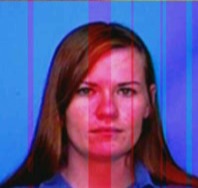| Instead of
writing it himself, he used a "true crime" book as his basic structure,
and he hired screenwriters to flesh it out in movie form. By selecting
this combination of collaborators, he managed to eliminate his
credibility problem with a true story, while simultaneously adding more
structure and forward movement to replace his instinctive aimlessness.
The book, "Bully", by Jim Schutze, is based on a true story that
occurred in South Florida in July of 1993, in which a group of stoners,
misfits, and dropouts killed one of their acquaintances who was abusing
some of them. The bully, Bobby Kent, was clearly a kid with major
problems. Although able to affect a normal facade with adults, he
reverted to psychopathic behavior in the company of other youths. He
consistently used his best friend, the aimless stoner/surfer Marty, as a
human punching bag, both physically and psychologically, and seemed to
get great pleasure in humiliating him. When Marty got himself a
girlfriend, Bobby walked on their sex, whipped the girl with a weight
belt, knocked his friend senseless with a punch, and raped the
girlfriend. The girlfriend, pretty much as clueless as Marty, thinks
that the abusive Bobby is just what her friend Ali is looking for,
because Ali is into any kind of kinky sex. Bobby proved to be too
abusive even for Ali's taste, forcing her to watch gay porn, hitting her
with his fists, and forcing her to scream that he's the best she's ever
had. These three victims of abuse plot Bobby's murder, and eventually manage to accomplish it with the aid of some equally clueless and stoned loser friends and a would-be gangster. To me, the best moments in the film are not in the sex and violence, but in the conversations between the kids, and in their dealings with their parents. Those moments will really make you cringe. For example, they plan the murder with no moral reservations, and call in friends as casually as they'd ask them to come out for a pizza. "Hey, Derek, we're gonna kill this guy in Lauderdale tonight, wanna come?" More frightening still is the casual way in which the invitation is accepted by kids who didn't know the intended victim. Some of them didn't even need a reason to kill a stranger. It was simply what they had to do to hang with their friends that night. Cool. When they plan the murder at Pizza Hut, they discuss it as casually if they were planning to sneak into a movie. The moments of blackest humor are generated when parents poke their heads through the doors. The kids are plotting the murder in one of their bedrooms when mom opens the bedroom door, says something like "what mischief are you plotting?", and makes sure that they've all had enough supper and brushed their teeth, talking to them as if they were eight. (Although their eight year old little brothers seem to be no more innocent than they.) Of course, they all do a "yes, Mrs Cleaver". The brief intrusion of the adult perspective into their world makes it clear just how little their parents really know about what they think and feel. Although, now that I think about it, mom gave them good advice, and should have done so even if she had known they were going to kill. The American Dental Association probably does advise to brush and floss your teeth after every major crime. There are many different ways to create a powerful movie. Ever since I can remember, independent auteurs have been talking about how to break free from the Hollywood Fantasy Factory and make films that seem real. This cinema verite movement has always been more popular with the turtleneck crowd than with mainstream filmgoers. The challenge for cinema verite has always been to make something which simultaneously seems completely real, yet also has form and structure so that the film seems to have a point or a plot or both. Larry Clark has come pretty damned close to achieving that. The interaction between the characters seems so uncontrived that I could easily believe it was real kids being filmed with a hidden camera, but at the same time, the film has a beginning, middle and end that flow as naturally as the slickest Hollywood product. Did I like it that much? No. I admired it and I have to acknowledge the emotional punch that it packs, but I didn't like it. It doesn't want to be liked. It wants to eat into you, make you feel nauseated, shock you, and make you feel that it's all real. I guess that hand-held cinema verite is not really my cup of tea, but I did watch it all enrapt, was never aware of any lag in the pacing, was gripped with horror at their casual attitude toward violence of all kinds, and felt their tension after they committed their crime and were basically just waiting to be caught. I wouldn't put Bully on my list of Top 10 favorite films for the year, but I can see why it made some lists as one of the Best 10. If you let yourself get into it, it can knock your teeth out. Footnote: do not take the film to be a true story. It has modified the book to produce a more compelling story, and the book itself was panned by many critics for taking too many liberties with the facts of the case. Seen through this double filter, the story can't be considered a representation of reality, except in a figurative sense. |
||||||||
|
The real Ali Willis >>>> (Played by Bijou Phillips in the film) |
 |
The real Lisa Connelly >>> (Played by Rachel Miner in the film) |
 |
||||
|
||||||||
